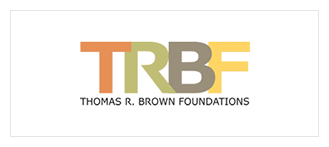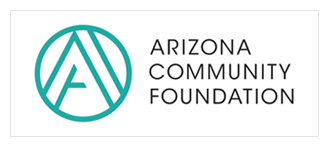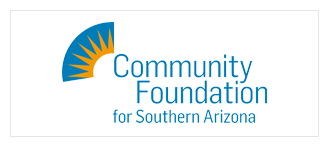There is a void in knowledge about the health, social, and economic well-being of chronically homeless women in Tucson, Arizona. Our goal is to provide important gender-specific information and perspectives on homelessness as it impacts women. To do so, is to move beyond existing measures, namely the federally mandated Point-in-Time (PIT) survey (see Annual Homeless Assessment Report to Congress [AHAR]), which captures national data on homeless populations. Currently, the major push to address homelessness is to prioritize by groups or past-year history of need or crises and provide housing accordingly (e.g., rapid rehousing - a federally-funded program administered through emergency shelters, to rehouse individuals based on severity index, veterans housing and section 8). However, it is important to note that the criterion for determining eligibility fails to recognize that homelessness encapsulates complex challenges beyond just the need for a physical shelter. Solutions that provide housing alone are rarely sufficient and reveal the need for more supportive approaches to housing, as is found in supportive housing for the elderly or the disabled. Moreover, challenges faced by homeless individuals suggest that women and men are different, as are their life histories and needs.
Our focus is to inquire about gender-specific factors related to homelessness: How are women becoming homeless and how is their health and social well-being impacted by being chronically homeless? This white paper includes both a review of existing literature and findings from a community needs assessment of homeless women who attend Sister José Women’s Center (SJWC) in Tucson, Arizona.
The literature cited in this white paper provides a framework for several key points related to homelessness:
1. The move to housing without the benefit of a transitional, supportive phase results in recurring homelessness (compounding failure to maintain housing, establishing a history of evictions, and fear of leaving the familiarity of homelessness). Transitional, supportive housing addresses recovery from homelessness, including isolation and trauma. In sum, homelessness extends beyond the loss of a physical living space, including disconnection from relationships, family and a community in a broader sense (Green, 2003).
2. Homeless women have often experienced disruptive and difficult life events, including emotional, sexual and physical abuse, and drug addiction that impacts mental and physical health and social well-being (Marcus, 2014). A majority of homeless women are domestic violence survivors, a precursor to homelessness for many women (Anderson & Rayens, 2004; Tutty, Ogden, Giurgiu, & Weaver-Dunlop, 2013; U.S. Conference of Mayors 2007). Homeless women experience violence in a paradoxical way: they often seek a male partner to increase feelings of security and protection from harassment, but then often are subject to violence and exploitation from the exact male “companion”.
3. Substance use and alcohol and drug problems play a complex role in becoming and staying homeless. Substance, alcohol and drug abuse is not only a cause of, but also an effect of homelessness. Substance abuse is very likely to affect mental and physical health (Finfgeld-Connett, Bloom, & Johnson, 2012), and impairs the ability to handle problems related to homelessness in a positive manner (e.g., enrolling and completing in alcohol and substance abuse treatment programs) (Zerger, 2002).
4. Poverty, unemployment and income inequality are the economic determinants for women to become homeless (Shinn, 2011; Bassuk, Melnick, & Browne, 1998). Being poor or unemployed detrimentally affects ability to: pay health insurance, access health care, acquire housing stability as well as buy fresh, healthy and nutritious food – all of which place homeless women at a “higher risk for death, injury, illness, poor nutrition and violence” (Stein, Andersen & Gelberg, 2007) than women who are not homeless (see also Cheung & Hwang, 2004).
Exposure to multiple stressors has a negative impact on homeless women’s general, physical and mental health as well their social well-being. Homeless women with children and aging homeless women experience additional barriers navigating the social services and health care systems not created to respond to the specific needs of homeless individuals (i.e., medication or treatment adherence and recovery following treatment/surgery). Additionally, poor health can lead to a cycle of failure as it relates to basic needs such as the ability to work and seek employment, and find stable housing.
To add to the current literature with the specific goal of also understanding the situation for homeless women in Tucson, Arizona, Sister José Women’s Center (SJWC; http://srjosewomensshelter.org) and the University of Arizona-Southwest Institute for Research on Women (SIROW) carried out a community needs assessment of chronically homeless women who seek out services and resources at SJWC. Founded in 2009, SJWC is a non-profit organization serving chronically homeless women. Open Monday-Saturday, SJWC provides drop-in services (e.g., breakfast, showers, laundry facilities, pillows and cots for daytime resting, visiting outreach from local agencies, free Wi-Fi, and leisure activities during the day) since June 2017, and is an expanded year-round overnight shelter program. Women in both the day program and overnight shelter state that SJWC is a safe place away from the stressors of being homeless. SJWC and SIROW have joined to conduct the community needs assessment using a community based participatory research framework (CBPR). The framework follows several key principles, as suggested by Israel (1998), CBPR: 1). Builds on strengths and existing resources within the community. 2). Involves collaborative partnerships throughout the research process. 3). Aims to benefit all involved partners. 4). Recognizes research as a process of reciprocal learning and two-sided empowerment. 5). Establishes a cyclical and iterative process of developing and maintaining trust and true partnership. The CBPR framework complements SJWC’s social justice approach of respect, dignity and compassion. Further, following the data collection phase, participating women found opportunities for support via a pilot program focused on moving women out of homelessness through curriculum, mentoring and case management. Confidence, Readiness, Empowerment, Action, Transformation, Engagement (CREATE) is a six-month program unique to SJWC. Women took an active part in the project not only by participating in the needs assessment (i.e., questionnaire) but also in providing detailed insight (i.e., open discussion) into the complexity of homelessness and discussing possible ways of meeting needs. Findings are based upon 50 interviews of chronically homeless women, conducted during winter and spring 2017.
Outcomes of this project include a review of the existing literature regarding current measures of homelessness, determinants of women becoming homeless and health and social well-being issues related to chronic homelessness. Furthermore, we developed a survey instrument/questionnaire in collaboration with SJWC that allowed us to gather detailed gender-specific information about health and social well-being, as well as needs, strengths, and survival strategies of homeless women (Survey instrument: Appendix). Table 1 summarizes the main survey results.
Table 1: In the past 30 days how troubled have you been by:
| # | Question | Not at all | Slightly | Moderately | Considerably | Extremely |
|---|---|---|---|---|---|---|
| 1 | Physical or medical problems | 16% | 13% | 18% | 24% | 29% |
| 2 | Problems finding work | 18% | 13% | 2% | 18% | 44% |
| 3 | Alcohol or drug problems | 64% | 16% | 2% | 7% | 9% |
| 4 | Legal problems | 67% | 2% | 9% | 4% | 16% |
| 5 | Problems finding a safe place to sleep | 42% | 11% | 13% | 11% | 20% |
| 6 | Problems finding a place to live | 16% | 7% | 7% | 7% | 62% |
| 7 | Problems with family members | 40% | 13% | 2% | 11% |
27% |
| 8 | Problems with strangers | 38% | 16% | 2% | 18% | 24% |
| 9 | Problems with people wanting something from you | 31% | 24% | 4% | 13% | 20% |
| 10 | Problems with men being aggressive towards you | 47% | 16% | 13% | 9% | 13% |
| 11 | Problems with other woman being aggressive towards you | 44% | 36% | 2% | 7% | 7% |
| 12 | Other problems related to being homeless. Please share what those are: | 18% | 7% | 7% | 18% | 47% |
Women in Tucson with chronically homeless status voiced many challenges and specific needs. In our view, the key survey results are:
1. At the time of the interview, besides finding a stable place to live and sleep, women were most troubled with finding work. Almost half of the participants felt troubled by feelings of sadness, vulnerability and stress. About a third of the women reported medical and physical health issues over the 30 days prior to the interview.
2. Over 80 percent of the interviewed women experienced domestic violence, and about two-thirds experienced additional violence in the community. Although a majority of the women were married at least once in their lifetime, the majority was unaware of their rights to spousal social security benefits.
3. Women frequenting SJWC showed a variety of histories of substance use and other drug abuse, partially rooted to an early stage of their life. Many participated in a detox treatment at some point in their lives. Only a small number of women reported that ongoing substance abuse, mainly alcohol and crack cocaine, continued to be a problem.
4. Women were affected by a number of physical and medical problems, such as high blood pressure, diabetes, and rheumatic diseases. Many women reported suffering from health conditions such as hearing loss, dental issues (e.g. loss of teeth), Post Traumatic Stress (PTS), depression, anxiety, and chronic pain.
5. They also reported that access to quality or even basic health care among homeless women is limited. Copayments, scheduling and keeping medical appointments, and possessing valid prescriptions for medication (let alone filling the prescriptions) present obstacles for homeless women.
Our study demonstrates the challenges of homeless women in Tucson extend beyond simply finding shelter, are different from the needs of homeless men, and provides insights into strategies to help this population.












